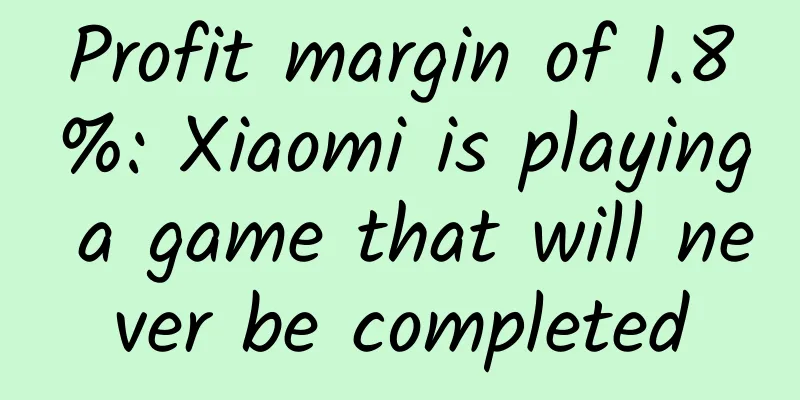Don't be obsessed with bananas when you are constipated! This fruit can help you defecate smoothly, it is cheap and delicious

|
Constipation has long been on the list of urban people's troubles. This is why the probiotic health care product market is rising against the market trend and is extremely popular. The laxative expert I want to recommend today is on this list. I even thought: its furry coat is a hint - I have a heavy weapon to clean the intestines, come and eat me! Yes, this laxative magic weapon is kiwi fruit , also known as kiwi fruit. Copyright images in the gallery. Reprinting and using them may lead to copyright disputes. In fact, there have been some studies on the use of kiwi fruit to treat constipation, but the level of evidence is slightly insufficient. The article I want to share today is from the American Journal of Gastroenterology, which uses an international multicenter randomized controlled trial, and the research conclusions are more valuable for reference. Those who have difficulty defecating and are troubled by going to the toilet: you can now copy homework without any worries! The study targets patients with functional gastrointestinal diseases, including functional constipation (FC) and constipation-predominant irritable bowel syndrome (IBS-C). These patients often use some drugs (including laxatives) to help relieve the pain of constipation, but the patients' own acceptance or comfort level is not good. Improving constipation through natural food and lifestyle is obviously more humane and easier to be accepted by patients, which is why more and more studies are focusing on certain foods, such as kiwi. This study recruited and screened 60 patients with functional constipation, 61 patients with constipation-predominant irritable bowel syndrome (IBS-C), and 63 healthy controls aged 18 to 65 years from different research centers in three countries (New Zealand, Italy, and Japan). In random order, each participant (whether patients or healthy controls) received kiwi fruit (two peeled green kiwi fruits per day) and psyllium (7.5 grams per day) for 4 weeks, with a 4-week washout period in between. Apart from this, all participants were not required to change their diet and lifestyle. The amount of dietary fiber provided by 2 peeled green kiwifruit and 7.5 grams of psyllium is equal, both are 6 grams . In other words, on the days of receiving kiwifruit or psyllium, each subject can obtain 6 grams of dietary fiber from these two test foods every day. Of course, the molecular structure of the dietary fiber contained in these two foods must be different, otherwise the final conclusion would not be drawn: Eating two green kiwis a day can help relieve the pain of constipation, and the effect is better than psyllium. Copyright images in the gallery. Reprinting and using them may lead to copyright disputes. The experiment confirmed that regardless of the race and type of constipation patients in the above three countries, kiwifruit and psyllium can significantly increase the average number of spontaneous bowel movements per week in patients. The kiwifruit group increased by about 1.5 times, while the psyllium group increased by about 1 time - obviously, the kiwifruit group won. More than just a bowel movement The benefits of kiwi fruit are not only that it increases the number of spontaneous bowel movements. By scoring the symptoms of patients, it was found that the kiwi fruit group had greater improvements in abdominal pain, stool hardness, and straining during bowel movements than the psyllium group, especially for IBS-C patients. Using serial MRI scans, it was observed that the kiwifruit group not only increased stool volume in the colon, but also significantly increased water retention in the small intestine and ascending colon. This once again confirmed what has been proven in previous studies: kiwifruit fiber has an amazing ability to help the intestine retain water and loosen stools! Kiwifruit usually contains about two-thirds insoluble fiber and one-third soluble fiber, and the water-retention and swelling capacity of these fibers is more than 6 times higher than apple fiber and 1.5 times higher than psyllium... (think of a sponge~) More than just dietary fiber The mechanism by which kiwifruit is friendly to the intestine is also due to the cysteine protease it contains - kiwifruit protease. Previous studies have shown that in an in vitro small intestinal digestion model, this proteolytic enzyme in kiwifruit extract can significantly improve the digestion of whey protein, zein, gliadin and alcohol-soluble protein from foods such as dairy products, soy products, and cereals. In short, it can promote the digestion of protein in the stomach and ileum. Tips: In addition to kiwi, there are three other fruits that contain cysteine protease, they are: pineapple, papaya, fig ~ FODMAPs friendly It is particularly worth mentioning that kiwi fruit is low in FODMAPs (FODMAP is a general term for a specific type of sugar that can easily cause irritable bowel syndrome and various intestinal discomfort symptoms) fruit. Therefore, it is particularly friendly to patients with irritable bowel syndrome (IBS) and can help relieve functional gastrointestinal symptoms! This furry little fruit totally deserves the title of EXCELLENT! Seeing this, some people may ask: What is the story behind Psyllium? Psyllium is a natural plant fiber source that can absorb several times its weight in water, forming a jelly-like viscous substance that increases the water content and volume of stool. It is considered the first-line treatment for functional constipation (FC) and constipation-type irritable bowel syndrome (IBS-C). That's why the study used psyllium as a comparison. One more thing to say: the entire trial design is not that simple. It also involves various questionnaires, laboratory tests, exclusion of confounding factors, adverse event records and reviews, etc. We just need to simply understand the results. A hot knowledge Kiwi fruit not only contains high levels of vitamin C. Kiwi fruit has always been known for its high vitamin C content. But in fact, it is also an excellent source of folic acid and potassium ! Among all fruits, only papaya and orange can match the folic acid content of kiwi fruit. At the same time, the sodium content of kiwi fruit is super super low. As a natural food with high potassium and low sodium (about 301-315 mg potassium per 100 grams and only about 3 mg sodium), and excellent vitamin and folic acid content, kiwi fruit has every reason to become a favorite on the diet of cardiovascular patients. Oh, by the way, kiwifruit also contains a lot of antioxidants, including but not limited to carotenoids, zeaxanthin, beta-carotene, chlorophyll, quinic acid, chlorogenic acid, phenolic compounds (including flavonoids), etc. Studies have found that the total antioxidant capacity of kiwifruit is higher than that of apples, grapefruits and pears. Although it is still not as good as raspberries, strawberries, oranges and plums, it is already excellent~ Don’t keep this delicious and useful knowledge to yourself. Share it with others so that more friends can stay away from the pain of poop. References [1] Gearry R et al. Consumption of 2 green kiwifruits daily improves constipation and abdominal comfort — Results of an international multicenter randomized controlled trial. Am J Gastroenterol 2023 Jun; 118:1058. [2] Bayer SB, Gearry RB, Drummond LN. Putative mechanisms of kiwifruit on maintenance of normal gastrointestinal function. Crit Rev Food Sci Nutr. 2018;58(14):2432-2452. [3] Richardson DP, Ansell J, Drummond LN. The nutritional and health attributes of kiwifruit: a review. Eur J Nutr. 2018 Dec;57(8):2659-2676. [4] Lacy BE, Mearin F, Chang L, et al. Bowel disorders. Gastroenterology 2016;150(6):1393–407.e5. [5] Drummond L, Gearry RB. Kiwifruit modulation of gastrointestinal motility. Adv Food Nutr Res. 2013;68:219-32. [6] [Agricultural Culture] "Agricultural Species and Cultural Heritage" - The origin and spread, production and consumption, and derived value of kiwifruit. China Agricultural Science and Education Foundation WeChat Official Account. 2022-11-25. Planning and production Source: Suiqian's Nutrition Hut Author: Liu Suiqian, certified by the Australian Nutritionists Association, clinical practicing nutritionist Editor: Wang Mengru |
>>: Which crow is black? Correct answer: None of them
Recommend
Samsung S8 is ruined by rear fingerprint sensor: it takes 6 seconds to read
Last night, the review of Samsung S8/S8+ was rele...
14 Best-selling School Bags Review: Which One Can Protect Your Backbone? Which One Is More Durable?
It is the beginning of the new school year. For p...
US judge: WeChat ban violates user rights and will not be allowed to be enforced
After a U.S. district court urgently halted the U...
How should community operations be done to make them valuable?
How to operate a community? How can we ensure tha...
Analysis of Keep’s model centered on user growth!
The author of this article conducts a detailed an...
How to select images for information flow ads? Are there any tips?
As the title says, today we are going to introduc...
I will use a 7,000-word article to teach you how to build a popular paid community from scratch
How can ordinary people create a community that c...
Online event operation: How to make a "hot-selling micro-course"?
In this era of paid knowledge , whether you are a...
How much is the price for being an agent of Xiangxi daily necessities mini program? Xiangxi daily necessities mini program agent price inquiry
How much does it cost to be an agent for a daily ...
Why are there more and more popular apps, but their popularity is getting shorter and shorter?
Changba, Moman Camera, Crazy Guess Picture, Face ...
WeChat’s paid reading service has not yet arrived, but Douban Time has quietly gone online!
The paid era of the knowledge economy is still ad...
Pinduoduo, whose number of users exceeds that of Taobao, saw its share price halved. Will it become a discarded child after Tencent and Alibaba reached a peace agreement?
"Anti-monopoly" is stirring up a vortex...
Keywords for social products in 2017: slutty, slutty, and cheap
A few days ago, I reviewed the relationship betwe...
Why is watching TikTok addictive?
Although Douyin has launched an anti-addiction sy...
Google Brain's founding member resigned, and he also broke up with Jeff Dean
This article is reprinted with permission from AI...









